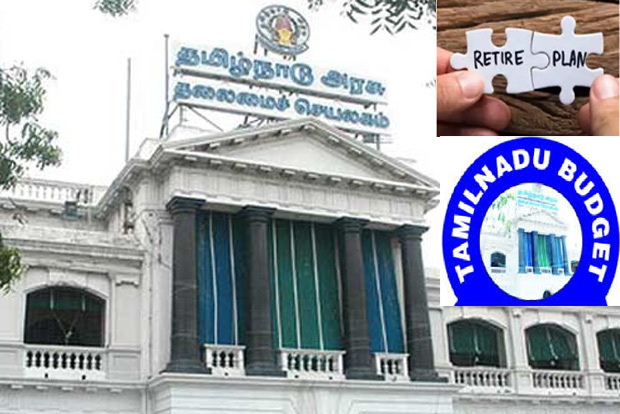Begin typing your search...
Editorial: A gambit whose result only time will reveal
The Tamil Nadu government’s decision to raise retirement age of its employees and teachers from 58 to 59, especially when the state is trying hard to pool in extra resources to fight the pandemic and the universal precedent of the slowdown, has not found many takers even among government employees, unions and most importantly politicians.

Chennai
Though no reason was handed out, those in the corridors of power pointed to sagging financials of the government which necessitated the surprise decision. The decision was taken to postpone a bulk payment to tackle the current crisis on hand which needed manpower and solid financial reserves.
The State has been facing a revenue deficit for over five years in a row since 2014, forcing the Government to borrow more. The prolonged lockdown has plugged revenue from tax and non-tax revenue sources. Hence it was reasoned out that a bulk pay-out, even if it was not at one go, would further strain the treasury. Yet for many employees, it has come as pleasant news. Their total count is pegged at nearly 20 lakh. It is said the State’s decision is in line with the higher retirement age followed in most States.
Earlier in 2018, a report said TN had the second-highest expenditure (only after Maharashtra) on salaries and pensions among comparable peer States. As per ICRA’s analysis in 2018, the State government’s revenue expenditure on salaries and pensions was estimated to be 40% between FY2016 and FY2018. As per the Budget estimates for 2017-18, the State’s salary and pension expenditure were pegged at Rs 66,908.59 cr, excluding the impact of the Seventh Pay Commission’s recommendation.
It was only recently, that the government had taken another decision not to hike the DA of its employees till July 2021 to save funds, estimated at Rs 4,500 crore, and divert the funds to manage the pandemic. Against this background, the urgency shown by the government to open Tasmac liquor shops, another avenue to shore up finances, and the VAT hike on petrol and diesel is understandable.
There are also political overtones which dates back to the erstwhile regime of J Jayalalithaa. TN assembly elections are due in May 2021. Arch-rivals – the ruling AIADMK and the DMK would be locked in a no-holds-barred battle to win the mandate without their two iconic leaders, J Jayalalithaa and M Karunanidhi, respectively. In any election, government employees and teachers, along with their eligible family members, form a sizeable vote bank, which both parties would try to woo. The retirement age decision might help the ruling dispensation. However, the main opposition DMK, now out of power since 2011, would also try its best to win over the same vote bank to romp home. It would be pertinent to recall that in July 2003, when the Jayalalithaa government faced a financial crunch and sought to curtail certain benefits, employees and teachers went on strike.
That time, at one stroke, it terminated the agitating employees. It won the case in the apex court also which said government employees had no right to strike work. But, in the subsequent Lok Sabha elections in 2004, Jayalalithaa’s tough stance rebounded on her. The employees’ retrenchment turned out to be a big issue and the party drew a blank. Later, her government reversed its decisions and restored the benefits but nevertheless lost the 2006 assembly elections too to the DMK. Now, in times of extreme financial crunch, it is only hoped that good politics would drive good economics without making the public and taxpayers bear the additional administrative expenses.
Visit news.dtnext.in to explore our interactive epaper!
Download the DT Next app for more exciting features!
Click here for iOS
Click here for Android
Next Story



